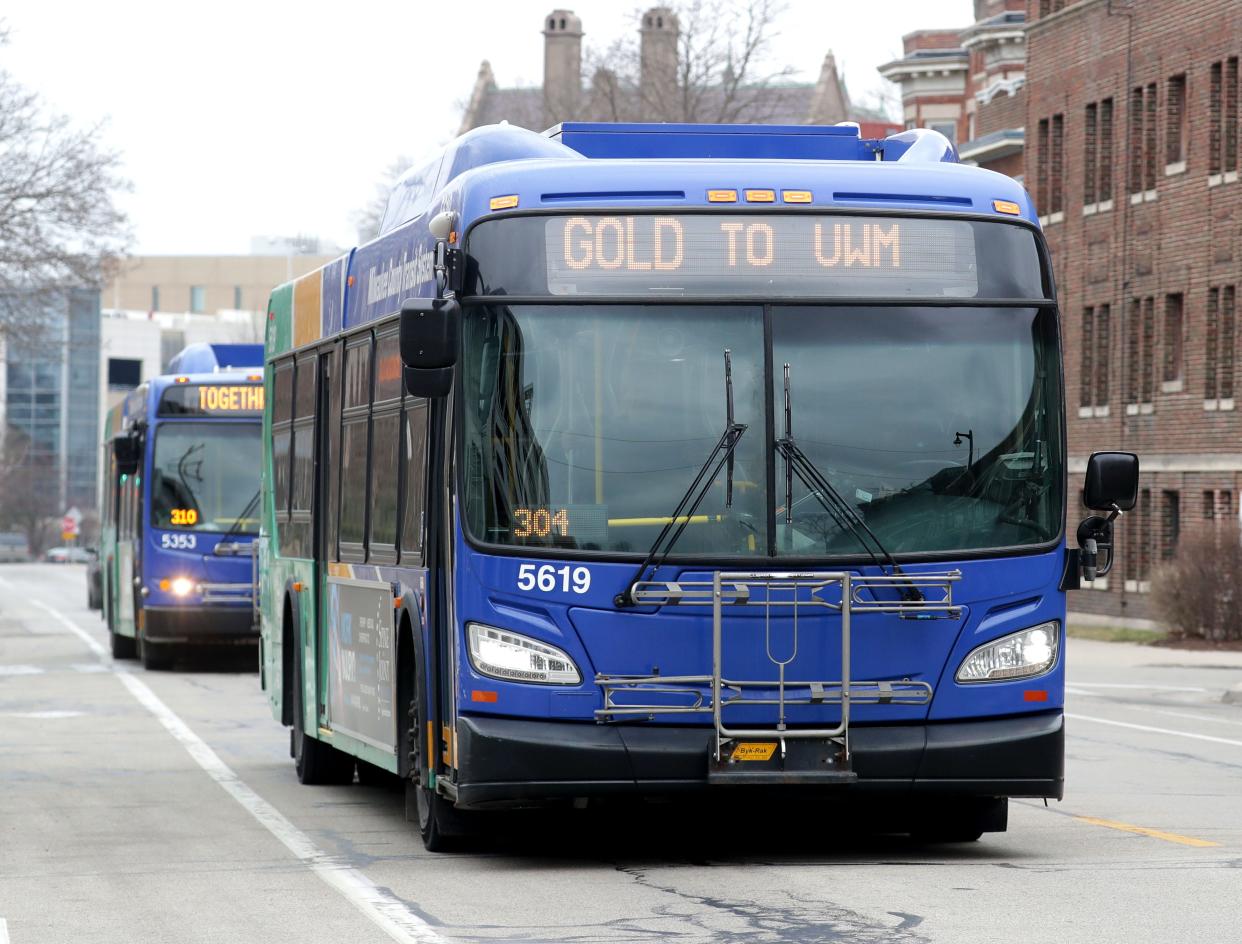MCTS and union reach contract agreement, despite calls for better security for bus drivers

After months of talks, the Milwaukee County Transit System and the Amalgamated Transit Union Local 998 reached an agreement this week on a three-year contract that would address workers' concerns about wages and health care.
“The company and the union have been working together since March to address wages, health care, security and work/life balance for operators and maintenance employees," said MCTS Interim Managing Director Denise Wandke. "I think this contract shows our commitment to our employees and desire to collaborate with the union."
The contract calls for a 7% pay increase this year, retroactive to April 1, 2022, and 2% increases over the next two years, according to MCTS spokesperson Anna Schryver. Percent employee contributions for 2023 and 2024 health care benefits remain at 15%. There will be slight increases to co-pays and deductibles — but there will be no changes to the health plan in 2023.
Negotiations take place every three years and are often a flashpoint for the fraught history between MCTS management and union members.
Some union members say agreement doesn't go far enough to address safety concerns
While the union saw a high turnout with 87% of members voting on the proposed agreement, ATU Local 998 Vice President Michael Brown estimated that up to 7% of those who voted were against the agreement due to remaining concerns about bus operator safety.
"It wasn't enough," said Brown, who felt more could have been offered during talks. "Those people that voted 'no' — even though they know they say it was a good contract the security issue wasn't answered and they're absolutely right."
In early November, bus operators, transit union members and mechanics spoke out about the conditions that the workers face, including frequent threats and assaults, health care costs, physical and mental burnout, poor staff retention, limited breaks and tight bus route schedules.
During the Nov. 29 Committee on Transportation and Transit, Donnell Shorter, president of the ATU Local 998, called for more measures to protect bus operators, telling supervisors that Milwaukee County's buses are the "Wild, Wild West."
"As more people start challenging operators physically, other people are going to see it and start challenging operators," Shorter said. "That's the reason why I think we have to draw the line in the sand at this point."
Bus operators say they face assaults and threats from passengers
In a Nov. 1 public hearing leading up to the county's 2023 budget approval, bus operators voiced their concerns, describing in detail assaults and threats passengers have made toward them and other drivers.
"There's been a lot of attacks on operators whether it's weekly or daily," Cynthia Simpson, an MCTS bus operator, told Milwaukee County Board supervisors during the public hearing. "Something needs to be done."
MCTS has a $1.5 million contract with private security firm Allied Universal, which provides guards on some buses who can remove passengers but do not have police powers to make arrests.
The transit system is facing a fiscal cliff in 2025 and has previously been relying heavily on federal pandemic funds since 2020 to keep the agency afloat.
Shorter told the Journal Sentinel that there is an additional statewide financial element at play: stagnant shared revenue back to Milwaukee County and the push for approval of a 1% local sales tax.
"We want to make sure Madison is giving us our fair share of shared revenue," Shorter said.
"Shared revenue is not just the wages," he said. "It is the ability to provide decent security because the sheriff's are so expensive, but we have to have that ability for passengers and operators to have that security and that shared revenue, I think, is part of that security function."
Our subscribers make this reporting possible. Please consider supporting local journalism by subscribing to the Journal Sentinel at jsonline.com/deal.
DOWNLOAD THE APP: Get the latest news, sports and more
This article originally appeared on Milwaukee Journal Sentinel: MCTS and transit workers agree on contract but safety concerns remain

